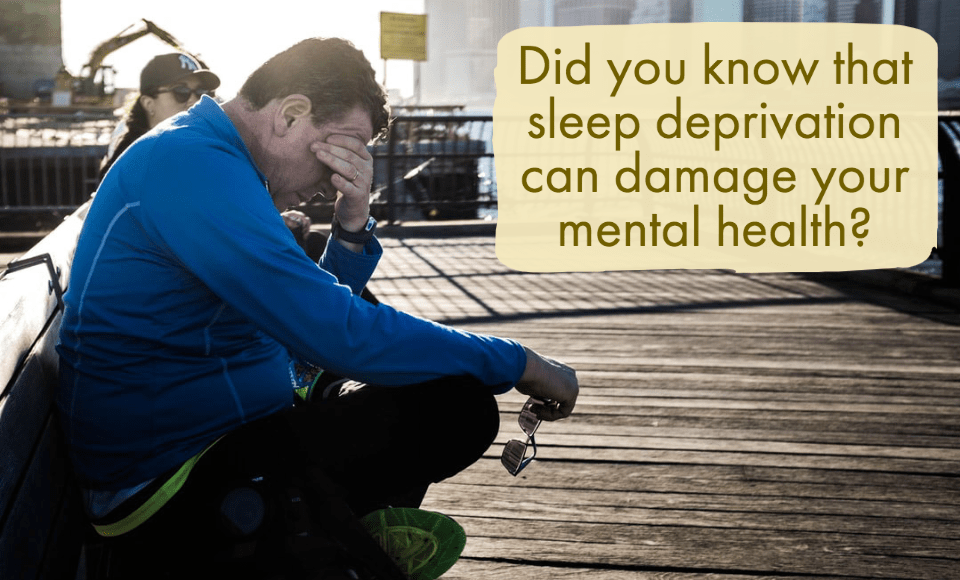While it is true that not everyone needs the same amount of sleep, everyone needs whatever for them is ‘enough.’ ‘Enough’ means that the sleep is adequate to rest the body and allow the mind a needed recess from the necessary activities of consciousness that preoccupy most of our waking hours. Not getting enough sleep to achieve these two fundamental needs is referred to as Sleep Deprivation. Sleep Deprivation is damaging to your health, both physically and psychologically. The impact of not getting as much as you need can be broad-ranging and frightening.
This brief article summarizes some of the most common psychological (or Mental Health) consequences of sleep deprivation.
Inadequate sleep can and does cause people to develop symptoms that look a lot like and can be easily mistaken for some specific disorders. Since accurate diagnosis is a prerequisite for determining appropriate treatment, anything that makes that process more difficult, can delay good treatment or, in a worst-case scenario, actually result in inappropriate treatment being given. Prescription meds for poor mental health are available at best prices here.
Among the best understood mental health consequences of a person not getting sufficient sleep are:
ADHD: The Inattentive Type
Sleep deprivation often causes inattentiveness while awake. It becomes difficult to focus and sustain attention. Memory, especially short-term memory, becomes rather quickly compromised. Reflexes are slowed as well and driving when sleep deprived is a notoriously dangerous activity.
Although ADHD is commonly thought of as a problem for children, adults can suffer from ADHD as well. People of any age can experience and suffer from sleep deprivation.
Although ADHD is understood to be more of a physical than a psychological disorder, it has many mental health implications and is, consequently, treated by mental health professionals and physicians who specialize in Psychiatry. Mistaking inattentive symptoms of inadequate sleep with ADHD can be a rather serious diagnostic error. Since real ADHD is frequently treated with stimulant medications, such medicines can further interfere with a person’s ability to get good sleep.
Mood Disorders
There are two basic varieties of what mental health professionals call Mood Disorders. Some are “Mono-polar” and include mood problems characterized by the intensity and intractability of a singular mood. Depression is probably the most commonly known and recognized as one of these.
The second variety of mood disorders and the one having gained a good deal of mass media and public attention in recent years is the family of “Bi-polar” disorders. These are conditions manifested by the ‘cycling’ of moods from one extreme (like depression) with another (like mania, euphoria or rages.)
Both Major Depression and Bi-Polar Disorders are serious conditions requiring specific medical and other therapeutic interventions. Sleep deprivation can actually result in a kind of mimicking of the symptoms of those disorders.
Psychoses
Extended sleep deprivation can result in symptoms of ordinarily associated with Schizophrenia and other thought disorders. These can include hallucinations (both auditory and visual) and paranoid ideation.
Without enough sleep, a person’s mind can simply not stay well!
A final caution:
The impact of sleep deprivation is understood to be cumulative. The effects cannot be neutralized by getting more sleep on another day. The impact builds up. Continuing inadequate sleep poses the greatest risks and can lead to the development of the illness-like symptoms described above.
Doctors may have seen each of these things as presenting complaints that, on examination, turn out to be reactive consequences of inadequate sleep. It is best to know how much sleep your own body and mind require to function well and then to make it a priority to get it – regularly.

